April 8 Update: Announcing IMPERIAL FEEDBACK
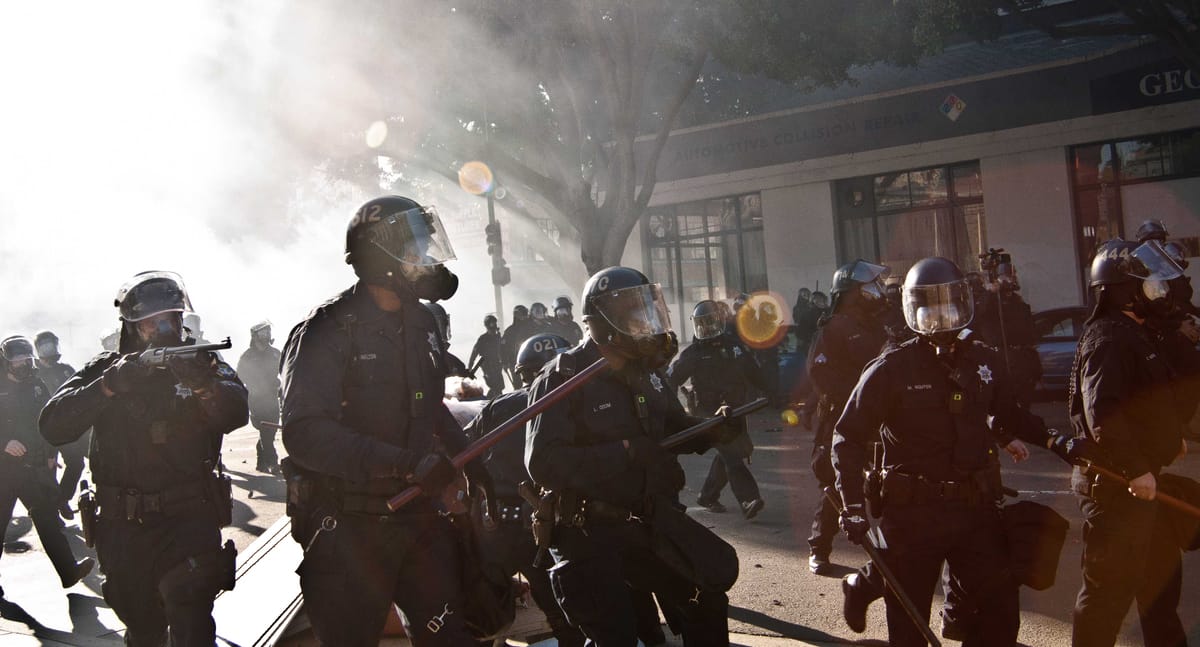
Take a break from staring at those sharply dropping market charts, go outside and take in the electric green leaves sprouting on the trees. Spring is a gorgeous time of year and not to sound too New Age or anything, but it's also when new energy kicks into gear. Things are heating up, with more than a thousand protests around the United States this weekend. As if hundreds of students getting their (entirely legal) visas revoked, elementary school kids being arrested by masked Immigration & Customs Enforcement agents, and blatant attempts to strip the federal government for parts weren't enough, those steep red lines and the ethering of trillions of dollars from stock market-linked retirement accounts (read up on why Americans mostly have 401ks now instead of pensions and how that is a net negative) seemed to be the tipping line that put hundreds of thousands of Americans into the streets.
Whether or not this slows down our Supreme Court-abetted slide into lawless authoritarianism is still to be determined, and if the economic trajectory of Turkey's past twenty years is any tell, it may well not be enough if the country's law firms and private sector continue to chase the brass check instead of abandoning avarice for principle. Don't hold your breath, if history is any lesson.
Some long-coming news: I'm officially under contract with Atria Books for my second title - Imperial Feedback: How Counterinsurgency Warfare Created Modern Policing. Don't ask me why the whole title didn't make it to the formal announcement, but here's the shiny notice issued earlier this week.

The inspiration for this project comes partially from threads Darwin and I picked up on during the research for The Riders Come Out At Night. In addition, the long tail of the Forever Wars and earliest on the United States was a constant backdrop to my quotidian reporting on criminal justice. Seemingly disconnected stories about gang databases, crime prediction algorithms, large scale biometric collection started to make more sense after unearthing where these tools and tactics were first developed, and what they were used for. In short, this book will track the parallel development of modern policing in France, the United Kingdom, and the U.S. and examine how the trajectory of Twentieth Century law enforcement was molded by the counterinsurgencies fought by these countries in Algeria, Northern Ireland and Vietnam, respectively. September 11th represents an inflection point where the 'best practices' of domestic security in Western countries became standardized, resulting in some intensive cross-pollination between these three nations and the emergence of a contemporary 'all crimes' security regime where terrorism, street crime and dissent are treated on a flat continuum.
All this will make far more sense once I'm through reporting and writing the book, but in the meantime, I plan on using Bleeding Edge to post items of interest from my archival spelunking and reporting. Who knows, you might even see early versions of sections or chapters beta-tested behind the paywall. But I'll definitely keep a running tab of books and documents consulted for Imperial Feedback on this site.
If you want to support my reporting and research, either for Bleeding Edge or the longer-term book project, please consider either subscribing or making a one-time donation below. Server space and records requests/reproduction fees are not cheap.
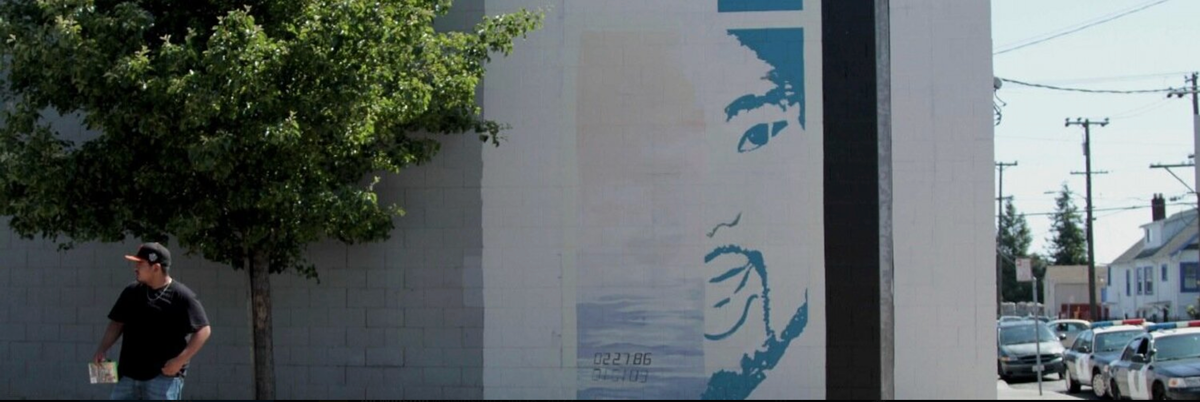
Let's get to it.
BLEEDING EDGE JOURNALISM
-What happens when you manufacture a crime wave out of thin air? Politicians throw money at cops hand over fist, with no strings attached. That's precisely what happened with shoplifting in California, where highly publicized - but sporadic - instances of shoplifting prompted state lawmakers to throw millions of dollars at police departments. Which they then used as a slush fund to buy massive amounts of surveillance equipment, that did nothing in turn to reduce low-level theft rates that had already started to even out following the massive social disruption of the COVID-19 pandemic five years ago. Joey Scott did a solid public records-based story for The Appeal that is well worth your time.

-Europe is staring down a very real threat of 'hybrid warfare' from Russia, with criminal gangs taking money for acts of sabotage, tankers dragging their anchors to sever key underwater fiber-optic cables and hard-right parties (hello Marine Le Pen) taking Russian cash to underwrite their poisonous politics. However, the Old Continent's law enforcement agencies are using this opportunity to drastically expand investigative authorities and tools once reserved for terrorism cases far beyond their original remit. The devil will be in the details, but it is yet another sign of mission creep for once-extraordinary powers and a sign of the cancerous logic of securitization.
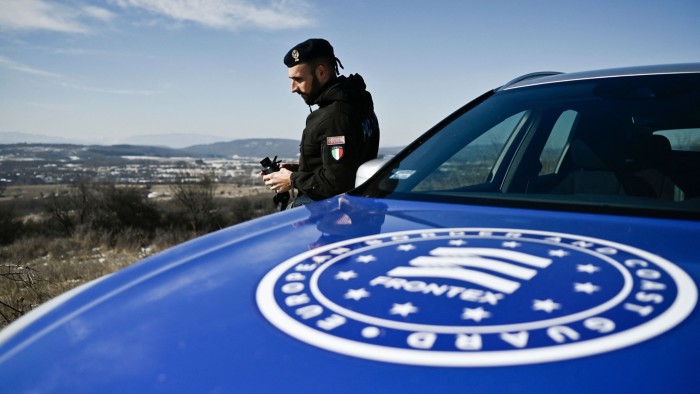
-Water is wet, cops lie, and Eric Adams' NYPD is violating the Constitution with remarkable consistency. Stop and frisk encounters, which surged to almost 700,000 per year under plutocrat Mayor Michael Bloomberg in the early 2010s before a landmark consent decree brought in federal court oversight, are once again on the rise, with a 50% increase in stops between 2023 and 2024. Given that civilian complaints against the NYPD are also skyrocketing to levels not seen since the Bloomberg-Kelly era, it is entirely unsurprising but also deeply infuriating that no court nor federal agency nor state or city legislature is willing to rein them in.
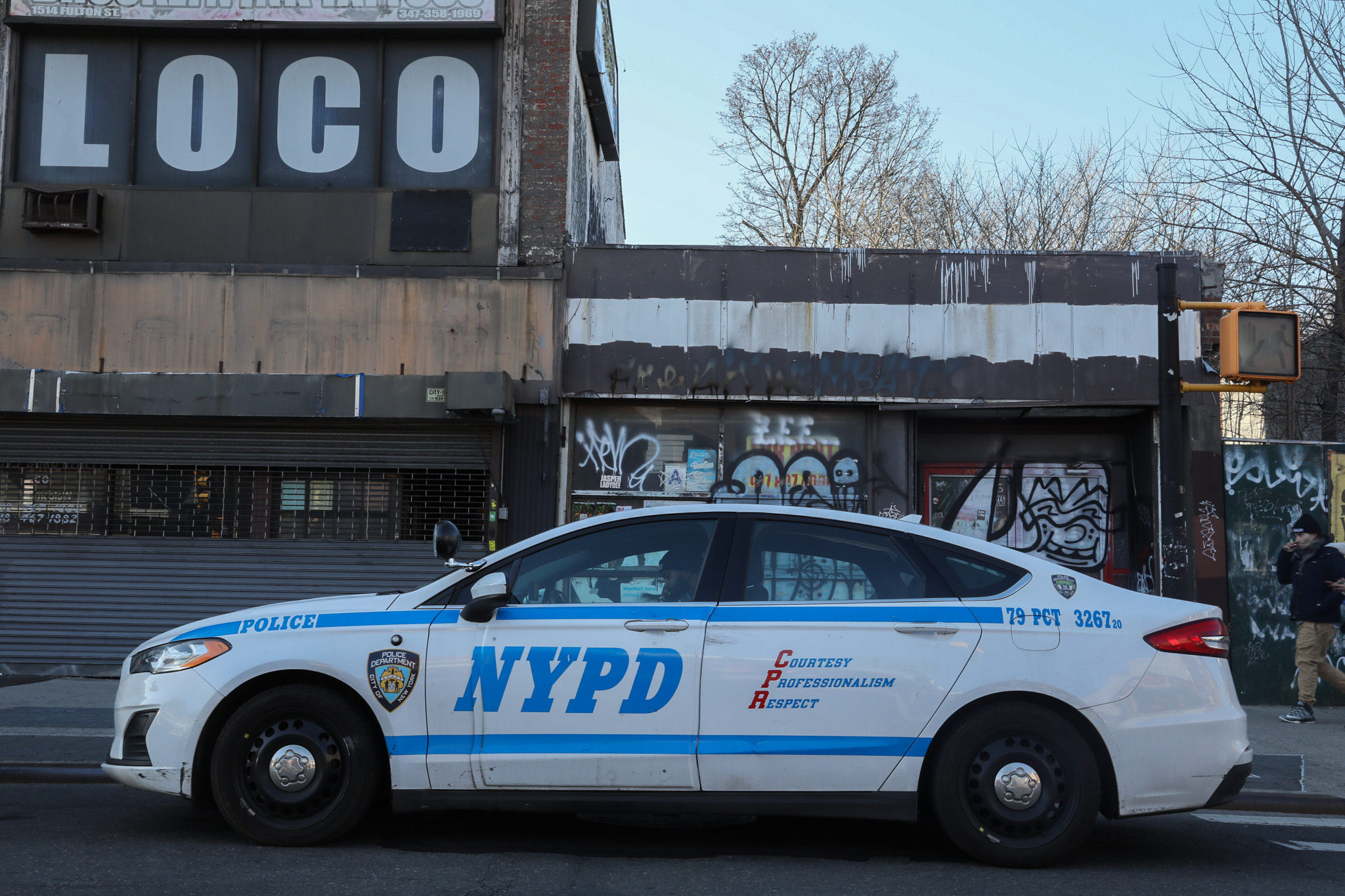
-The Arctic is warming fast, and the region's vast mineral resources are undoubtedly going to be the subject of ample diplomatic jockeying and potentially worse. The Financial Times has a long-running series on the new Great Game in the Arctic, and Helen Warrell's dispatch from winter warfare training in Norway's far north is a gripping read. I found the information about Russia's cutting-edge deep sea intelligence gathering agency particularly fascinating: straight out of Len Deighton or John Le Carre.
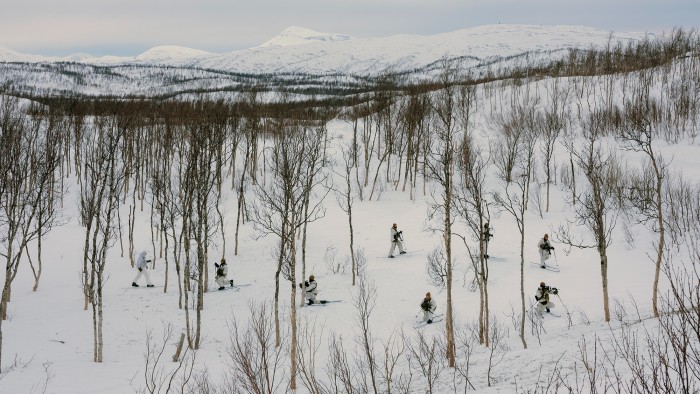
-Northern California residents are by now well familiar with the right wing, tech and crypto-funded gray money network that underwrote both the recalls of the SFUSD board and San Francisco District Attorney Chesa Boudin before trying their hand in last fall's mayoral elections. Well, they were aided and abetted willingly by the Hearst Paper, which for accidents of history and local politics is sadly the largest media presence left in the Bay Area. The Phoenix Project, which closely tracks the gray money network, wrote a terrific article summing up a pathetic interview with the Chron's editor-in-chief, who was essentially tongue-tied when it came to accounting for his paper's willing platforming of folks like David Sacks, who has since expanded his political operations to The Beltway.

-As students are getting hauled off the streets and out of their dorm rooms for specious deportation cases linked to Palestinian solidarity activism, an auspicious number of them (including Columbia graduate student Mahmoud Khalil) are ending up at immigration detention centers in Louisiana, far away from their support networks and in a federal circuit court that has one of the lowest rates of successful challenges to removal proceedings. The Guardian's Oliver Laughland took a step back and examined the constellation of private detention facilities in rural Louisiana, which have long come under fire for in-custody deaths and horrific conditions.

-This may be the most blatant example possible of the sort of maniacal behavior that characterizes Hudson County, the slice of Northern New Jersey just across the water from Manhattan where I began my journalism career. The tiny town of North Bergen's police department appears to be run by an absolute lunatic who made his subordinates' lives hell in ways so convoluted and twisted that it beggars belief. I'm not going to spoil it further, you'll have to subject yourself to the same level of depravity that had me in tears.
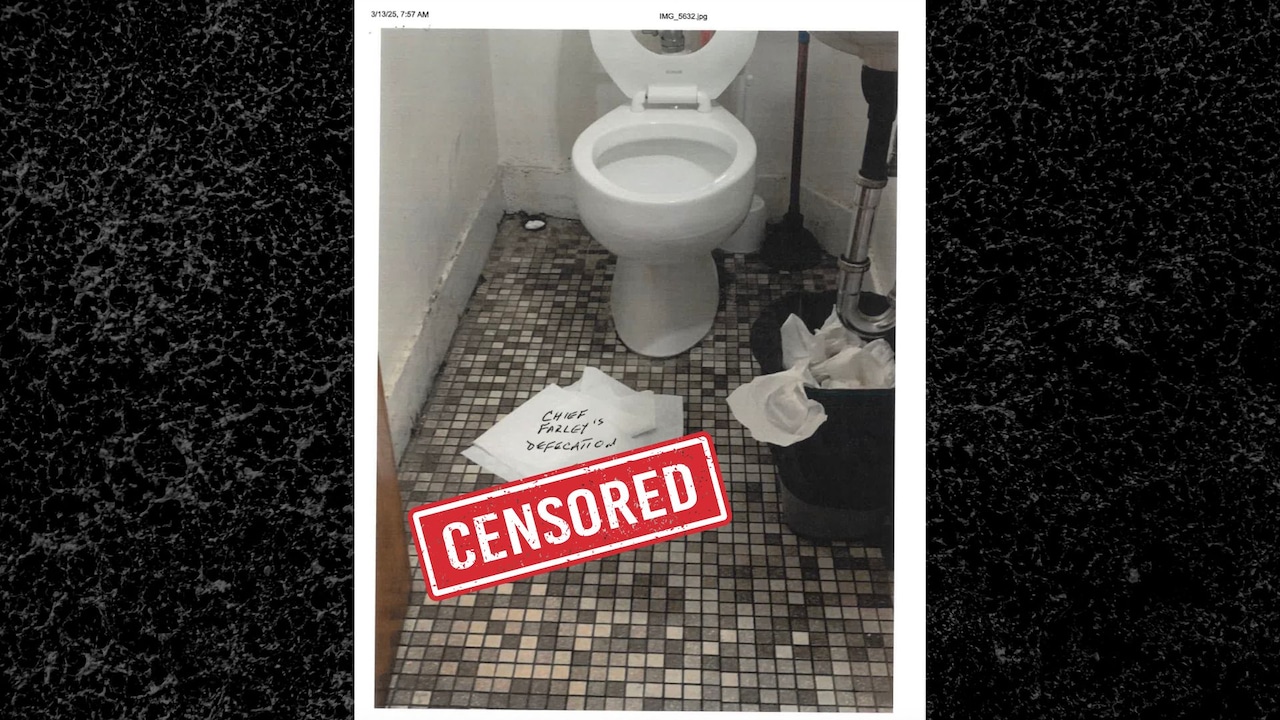
BOOKS - I'm not big on biographies, but French writer Emmanuel Carrère's spellbinding Limonov (2011) is well worth your time. The subject is not particularly sympathetic: he's a Ukrainian street turned poet who bounced around in New York City and Paris during the 1980s and 1990s before finding brief success in post-Berlin War Russia with his books, getting neck-deep in the Balkan Wars and finally ending up as an ultra-nationalist (read 'Neo-Fascist') in Russia.

The writing is captivating, the protagonist equally compelling and repulsive, and the English translation is quite decent (I opted for the original French). Also doubles as a cutting look at the European literary establishment of the 1990s and 2000s to boot.
FILM - New York City on the skids? Check. Prime Walter Matthau? Check. A subway heist as the central plot vehicle? Check.
The Taking of Pelham One Two Three is widely viewed as one of the best films from the 1970s in terms of action, dialogue, and cinematography. It's cleaner and less overwrought than some of the 'high brow' features of the era, while perfectly encapsulating the frenetic energy of a pre-gentrification downtown. I promise Astor Place will never look the same after seeing it in this context.
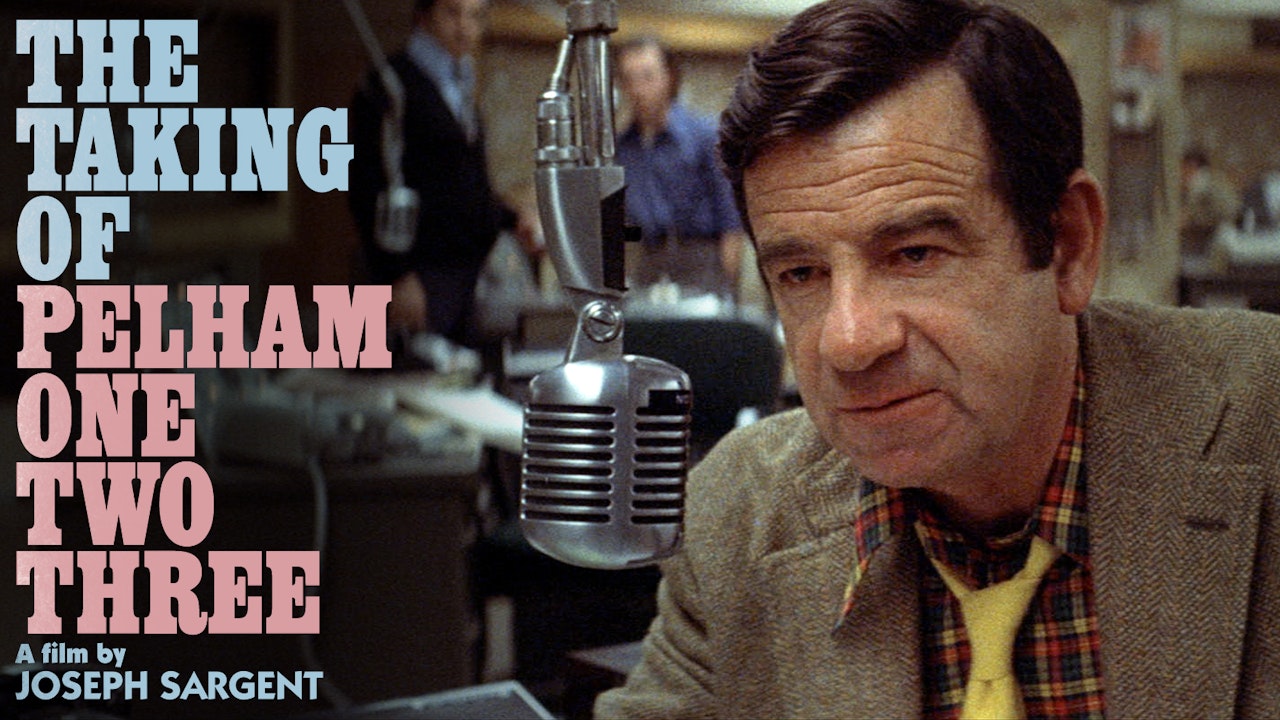
MUSIC - Blind guitarist Amadou Bagayoko, half of an eponymous Malian duo with his wife Marian, passed away earlier this month at the age of 70. A marvelous musician with a voice of silk, Amadou's range was tremendous, from samba to rock to the Sahara and Sahel's 'desert blues'. Though Amadou and Mariam found world reknown with 2004's Dimanche a Bamako, I prefer their 1998 album Sou Ni Tilé, which brought them to the attention of Manu Chao and laid the foundations for his epic production work on their breakout record. Reposez en paix, Monsieur.









